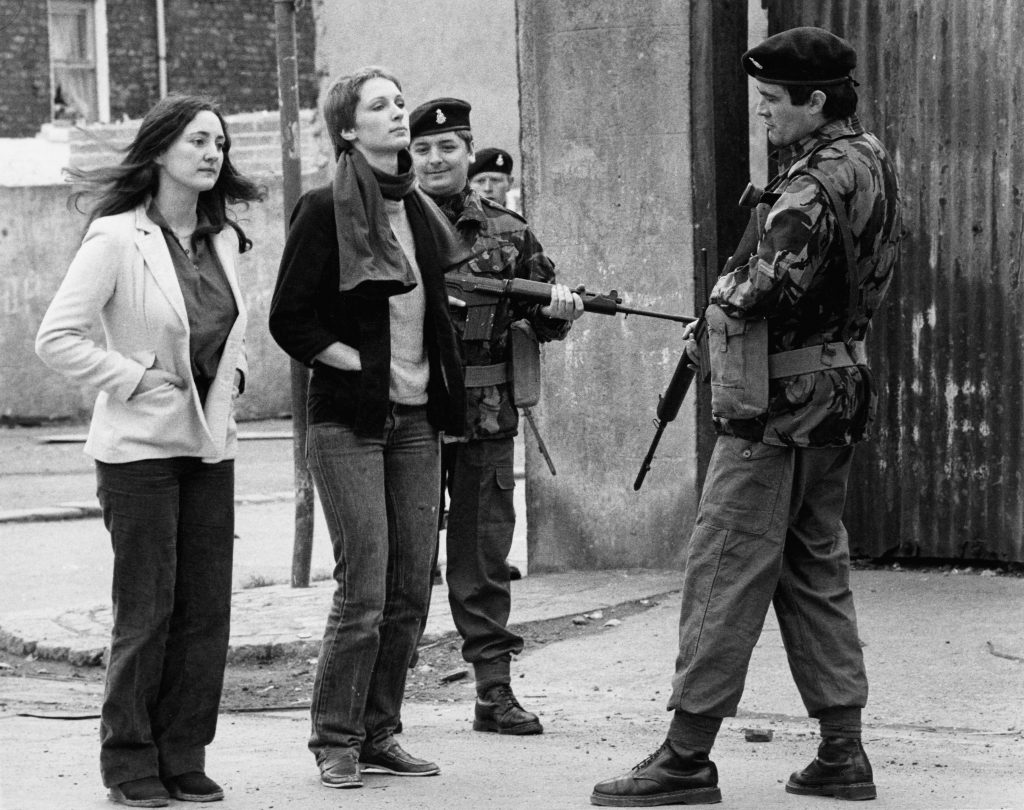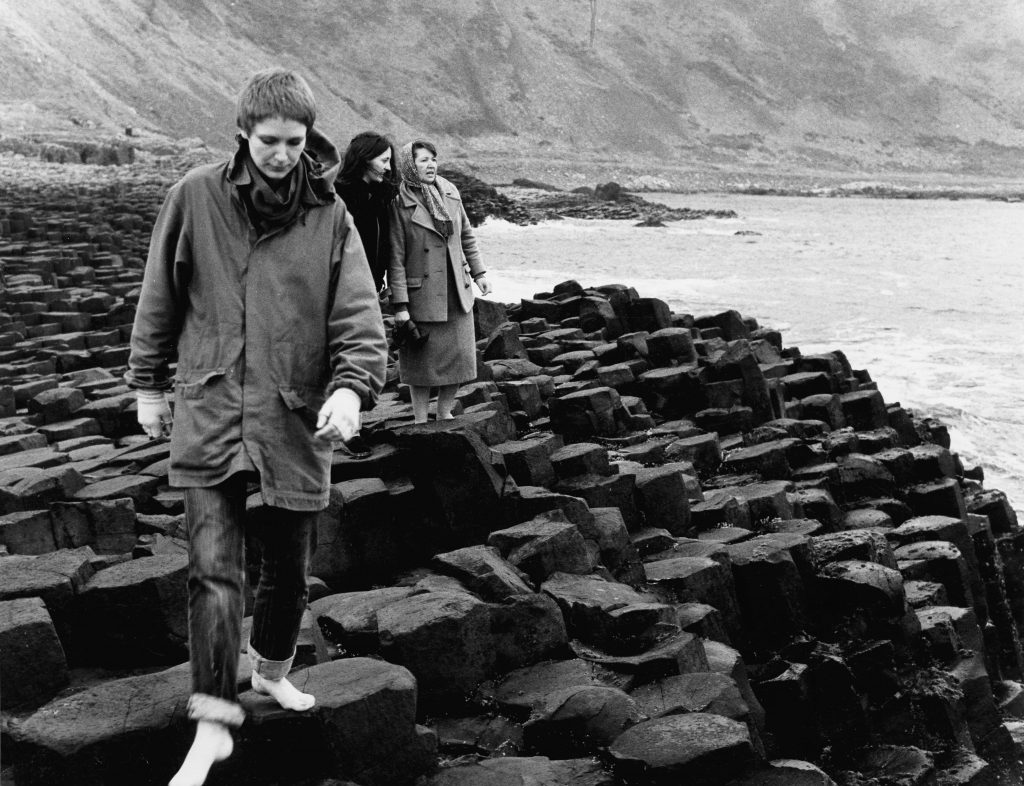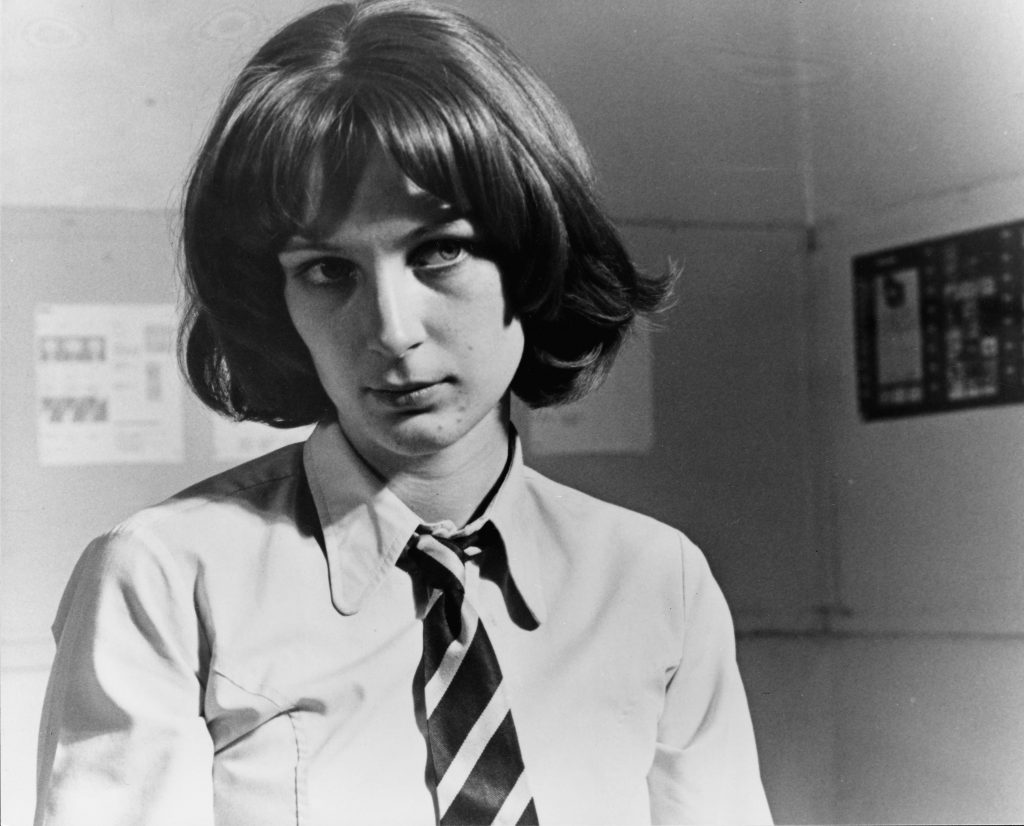Maeve. Directed by Pat Murphy and John Davies, Ireland, 1981

Lizzie Borden is the writer-director of Born in Flames, as well as Regrouping and Working Girls.

Pat Murphy, via email, May 26, 2018:
The referendum to repeal the 8th amendment was on Friday. It’s been grim. The “No” people were funded by US Christian fundamentalists and if they won, the results would have been used to roll back women’s rights right across Europe.But it’s a landslide 2 to 1 vote for YES! I have been weeping all day. Ireland is no longer Gilead.
I met Pat Murphy in 1977 through her fellow Whitney Program attendee, writer Becky Johnston. Pat played a “Socialist News Editor” in my film BORN IN FLAMES, which advocated, among other issues, for women’s right to choose. Long after Becky and the third editor, Kathryn Bigelow, moved to Los Angeles, Pat remained with the film, becoming an essential and passionate voice. I spent time with her in Dublin in 1999 when I was trying to make a film version of MISS JULIE, then in 2000 in Los Angeles when she showed NORA. Our lives separated except for a flurry of emails now and again, when she would write from Singapore or India where she was teaching or filming.
I didn’t realize how serious Pat’s Buddhism was until she sent me a photo of herself in 2016 after taking vows as a Buddhist priest. In orange and magenta robes, her hair shorn, her face glowing, she was stunning. I’d always thought Pat beautiful – the prototype of the Irish girl in oversized sweaters with long, messy blonde hair – her beauty accompanied by a complete lack of affect or vanity. Pat was always “present,” a great listener whose answers were deeply considered. And she was extremely modest.
And I didn’t realize the extent of her modesty until I saw MAEVE again and realized Pat had filmed, edited and presented MAEVE within the five-year period in which BORN IN FLAMES was made. While we played with fake guns and planted fake bombs in downtown Manhattan, Pat travelled in and out of a real war zone. I don’t think we really understood that or how major it was that MAEVE had opened the Edinburgh Film Festival: we’d seen it at the Public Theater in New York.
As others have noted, Pat’s films are about women pushed to the side of history. MAEVE, too, has been pushed into the “Irish Troubles” bin – important but a partial and patriarchal view of its content. In re-seeing the film, I was stunned by how relevant its feminism is, ahead of its time and exactly of this time.
Pat Murphy, via email, May 22, 2018:
I’m amazed that MAEVE is getting this attention now. I was so politically minded in those days and fully believed that the film was a political document and was therefore designed to become redundant. Because of course the world would change and there would be no need for the film.
In the States in the ‘80s, feminist voices were a warring multitude. But Maeve/Pat was virtually speaking a foreign language in Belfast and would not be quieted even though many couldn’t “hear” her. While MAEVE embodies classic Second Wave Feminist ideas – such as rape and domestic violence being entrenched misogyny (a title in a Belfast bookstore in MAEVE reads “Violence Against Wives”) – Maeve’s line, “I have the right to not know what I’m doing,” could be the argument from a Fourth Wave feminist, post-[allegations against] Aziz Ansari, demanding her right of contradiction.
Much has been written about the “colonized body” at war in MAEVE. Maeve and her sister endure harassment from soldiers, but with Maeve’s knowledge that, when occupation is over, their own men will be their colonizers. Maeve tells her boyfriend: “Women’s sexuality is so absurd. It’s almost an act of liberation to turn yourself into a sex object.” Yet she didn’t: it’s a provocation.
Much was made of the full-frontal nude image of Maeve when it first appeared. It isn’t sexual – Maeve is with her sister. There is nudity but no eroticism in the film. Objectification is endemic. Some early critics analyzed the full-frontal shot in “gaze” terms to distance it, apparently offended – perhaps to notsee it as we can see it now. If women can’t win the war or take control of the “machine/ apparatus,” she can “own” her body. In this, Maeve is like Nana in VIVRE SA VIE, one of Pat’s influences.
But (unlike Nana) Maeve didn’t die. She flew to London. And Pat flew to New York to deliver her own lines in BORN IN FLAMES: “We have to take over the language… we have to take control of describing ourselves.”

